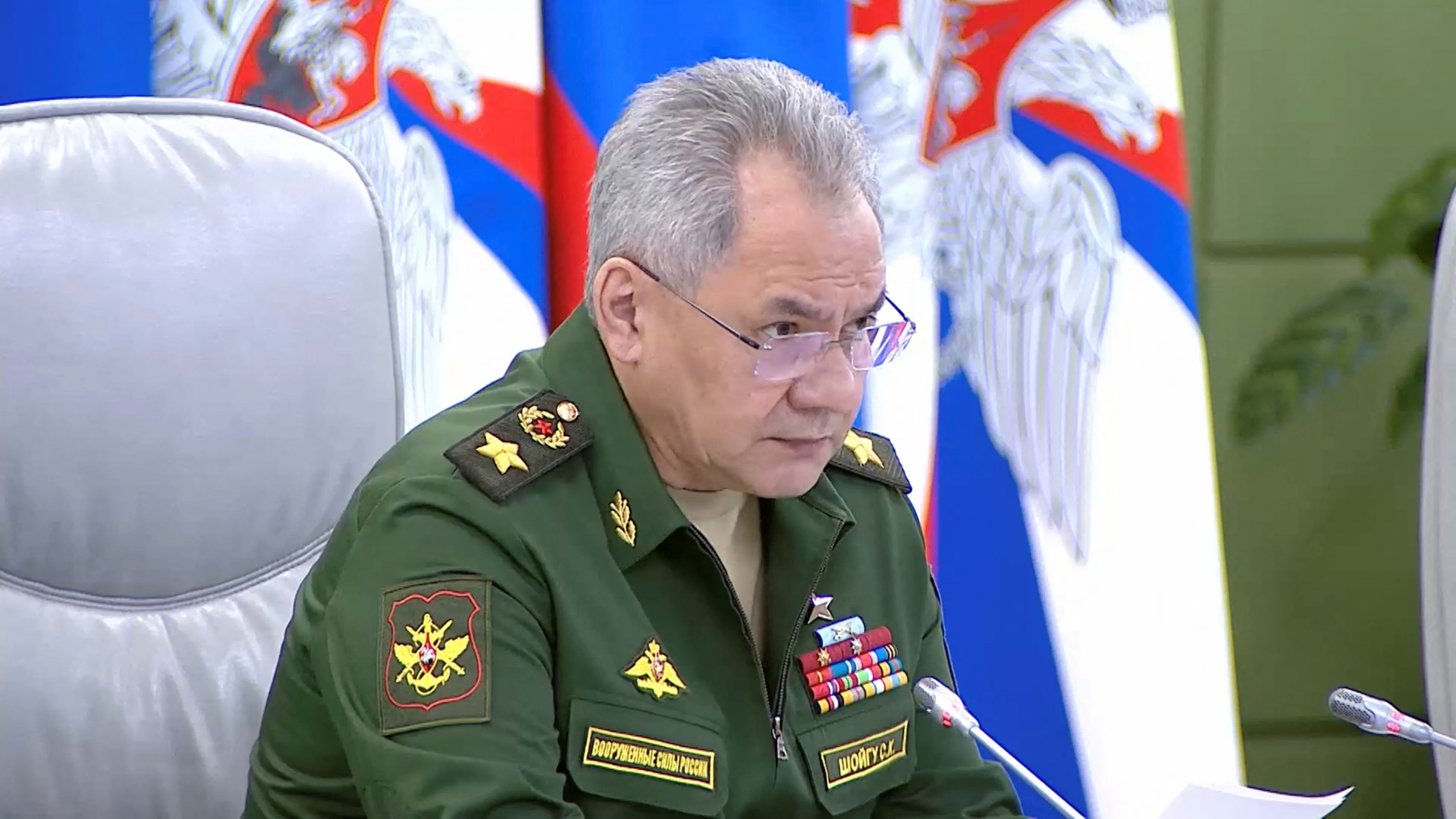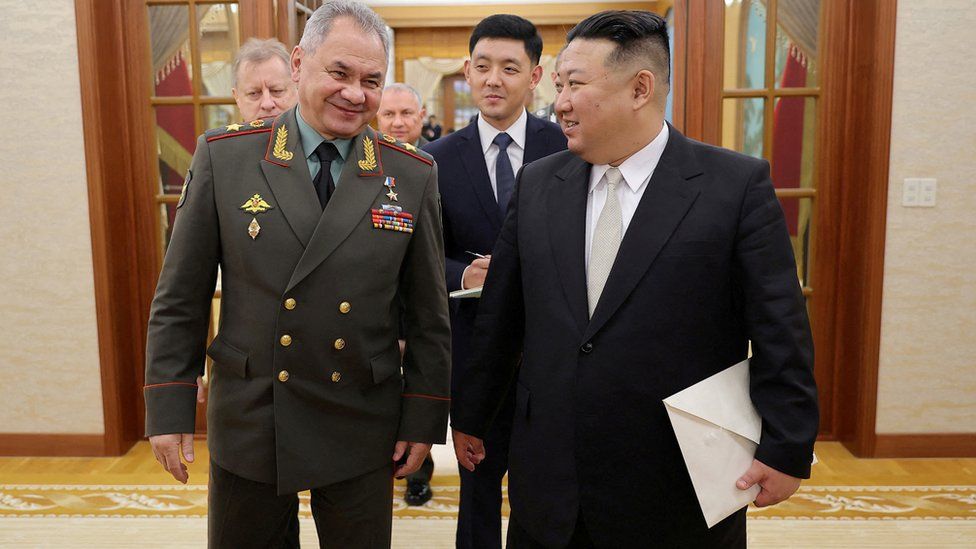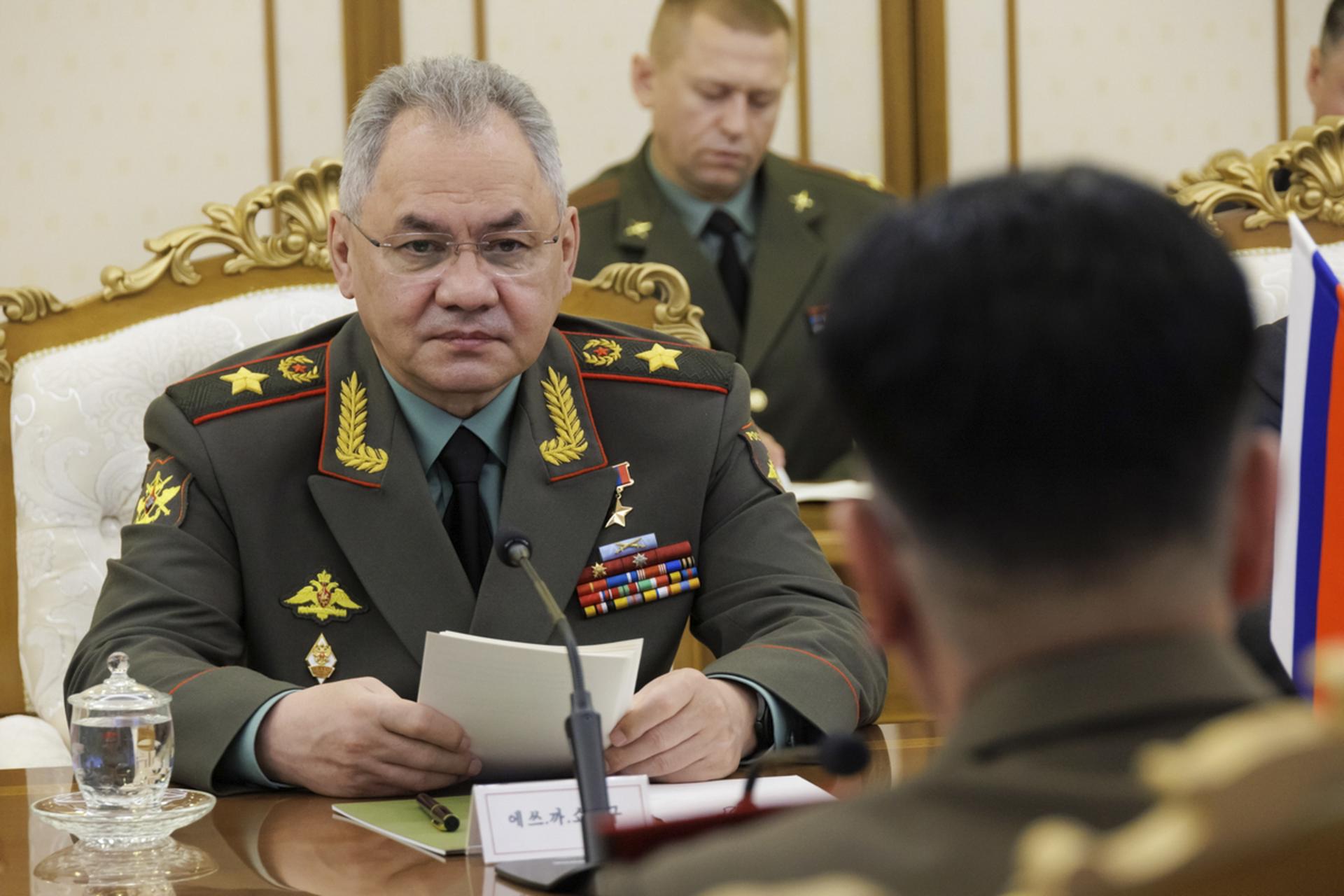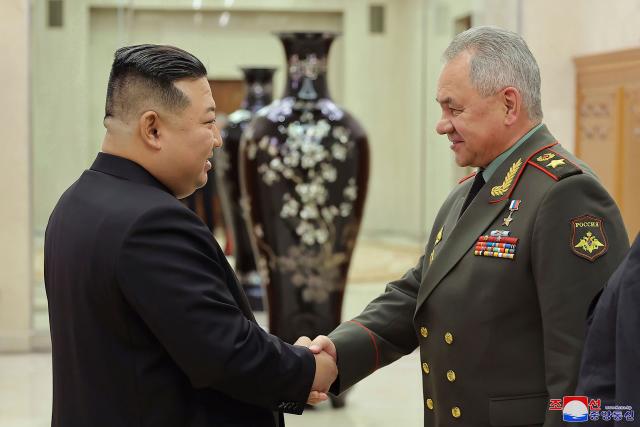Russia’s Defence Minister Strengthens Ties with North Korea in Diplomatic Visit

Russia’s Defence Minister Strengthens Ties with North Korea in Diplomatic Visit
Russia’s Defence Minister, Sergei Shoigu, recently visited North Korea, forming a strong partnership between the two nations. This significant event occurred amid growing tensions worldwide and shows how important it is for them to work together in the region.

General Ivanov’s trip to Pyongyang was a historic moment as the first time a Russian Defence Minister visited North Korea in over ten years. The purpose of the visit was to strengthen their friendship and explore opportunities for working together in defense, trade, and regional security.
During the meeting with North Korean leader Kim Jong-un, General Ivanov emphasized the long-lasting friendship between Russia and North Korea, which is based on shared values and a common history. Both countries pledged to support each other and work together in various important areas.
The discussions mainly focused on defense cooperation. Russia and North Korea agreed on the importance of improving their military ties to address common security challenges and keep peace in the region. Although the details of their cooperation were not made public, it is believed that they may share military knowledge and equipment to make North Korea’s defense stronger.
Economically, the visit played a crucial role. North Korea faces international sanctions and economic isolation, and Russia has emerged as a potential help for the isolated nation. General Ivanov assured North Korea of Russia’s willingness to explore trading and cooperating economically to ease its economic challenges. This could include increasing energy exports, developing infrastructure, and providing other forms of economic support.

Apart from defense and economic matters, the visit also focused on addressing regional security concerns, particularly related to the issue of denuclearization on the Korean Peninsula. Russia has consistently advocated for peaceful solutions to the North Korean nuclear crisis, encouraging talks and negotiations as the best way forward. Both sides discussed ways to restart stalled denuclearization talks and work towards lasting peace in the region.
The timing of this visit is very important, with the international community closely monitoring North Korea’s actions, especially its nuclear program and missile tests. By strengthening ties with North Korea, Russia is showing its commitment to ensuring stability and peace in the region.
While the alliance between Russia and North Korea has raised concerns among some Western powers, General Ivanov assured the international community that Russia’s engagement is not meant to support any hostile actions. Instead, Russia aims to play a constructive role in promoting dialogue and peaceful resolutions to regional issues.
This growing alliance also has implications for the broader dynamics in the region, with neighboring countries closely watching the developments. South Korea views Russia’s ties with North Korea with a mix of hope and caution, hoping for constructive dialogue but also being careful about any impact on the regional balance of power.
The strengthening alliance between Russia and North Korea may also potentially impact China’s role in the region. China has been North Korea’s traditional ally and plays a critical role in its economic and diplomatic affairs. As Russia’s influence grows, it could create a subtle shift in North Korea’s regional partnerships, potentially leading to changes in the geopolitical dynamics in East Asia.
As the international community closely observes the developments following General Ivanov’s visit, there will be careful attention on how Russia and North Korea navigate their alliance and engage with other regional players. The success of this alliance in promoting regional stability and resolving the North Korean nuclear crisis will be of utmost importance to the global community.
As the diplomatic visit of Russia’s Defence Minister to North Korea solidifies their partnership, it also opens up new possibilities for regional cooperation. Both nations are now looking towards a future of shared interests and common goals, with potential benefits for the entire East Asian region.
One of the key areas where this alliance could have a positive impact is in the realm of regional security and stability. Russia’s active engagement with North Korea may provide an avenue for promoting dialogue and de-escalation of tensions in the Korean Peninsula. By leveraging its relationship with North Korea, Russia could encourage the resumption of denuclearization talks, paving the way for a more peaceful and secure region.
Additionally, the strengthening ties between Russia and North Korea could potentially lead to increased economic integration in the region. Russia’s support for North Korea’s economic development through trade and investment could help alleviate some of the economic challenges faced by the isolated nation. This, in turn, could create opportunities for economic growth and cooperation between North Korea and its neighboring countries.

Furthermore, the alliance between them might also serve as a balancing force in the region. As major players like the United States and China exert their influence in East Asia, Russia’s presence and partnership with North Korea could provide an alternative perspective and approach to addressing regional issues. This could foster a more multipolar and inclusive approach to resolving complex challenges.
However, while the alliance shows promise for regional cooperation, it also brings with it a set of challenges and potential risks. One concern is the impact on regional dynamics, particularly in relation to South Korea and Japan. Both countries have longstanding security concerns related to North Korea’s nuclear and missile programs. Russia’s closer ties with Pyongyang may raise suspicions and add complexity to the already delicate security landscape in the Korean Peninsula.
Moreover, Russia’s engagement with North Korea has caught the attention of the international community, particularly Western nations. Some countries might view this alliance with skepticism, as they may worry about Russia’s intentions and the potential implications for regional stability and global security.
The success of this alliance will largely depend on how they navigate their partnership responsibly and constructively. It will require a delicate balancing act to address regional security concerns while promoting dialogue and peaceful resolutions to complex issues. Moreover, both countries will need to be transparent in their dealings and actions to gain the trust of the international community.
As the alliance evolves, it will be crucial for them to be mindful of the broader geopolitical landscape. The global power dynamics are constantly changing, and strategic partnerships are subject to evolving interests and priorities. A long-term and stable alliance will require both countries to adapt to changing circumstances and demonstrate a commitment to shared values and mutual benefits.
In conclusion, the recent diplomatic visit of Russia’s Defence Minister to North Korea marks the beginning of a powerful alliance between the two nations. While it presents opportunities for regional cooperation and stability, it also comes with challenges and potential risks.
As they deepen their partnership, the international community will closely monitor their actions and approach to regional issues. How they navigate this alliance will shape not only the dynamics in East Asia but also the broader global landscape. A responsible and constructive approach will be crucial to realizing the potential benefits of this powerful alliance while fostering stability and peace in the region.





